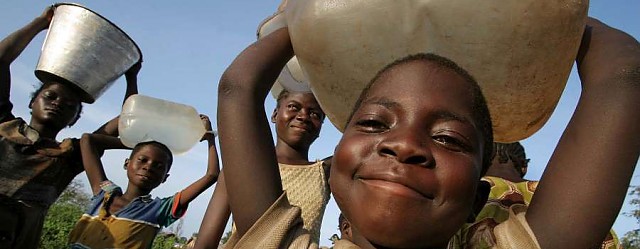Home > What We Do > Assistance > Water, Sanitation and Hygiene (WASH)
Water, Sanitation and Hygiene (WASH)

Water for Life
When people are forced to flee their homes, they often struggle to access adequate water, sanitation and hygiene facilities, endangering their health and survival. UNHCR works to ensure persons of concern can access adequate water supplies, sanitation facilities and hygiene services so they can drink, cook, wash and use a toilet safely to keep healthy.
All refugees have the basic right to access safe water of sufficient quality and quantity and to access hygienic sanitation services, both at home and at institutions including schools and health facilities. This reduces morbidity and mortality and enhances protection, dignity and quality of life for refugees and other persons of concern.
UNHCR Water Sanitation and Hygiene (WASH) programmes promote demand-led approaches that put people rather than engineering at the heart of our interventions. In addition UNHCR is committed to WASH solutions which are efficient at reducing long term operational costs and environmental impacts, without compromising on quality.
Provision of accessible and adequate WASH interventions has positive effects across numerous important areas of intervention:
- Protection: Long distances to water points can put young girls and women at risk of sexual violence.
- Nutrition: A woman drawing 80 litres of water for her family from a well and carrying it to their home 200 metres away (often uphill from the well) uses approximately 17% of the standard ration of 2,100 Kcal/day just to accomplish this task.
- Education: 42% of children attending school in one Ugandan refugee camp had their schooling interrupted due to water collection.
- Food security and livelihoods: Women who spend their time collecting water are missing opportunities to participate in more productive activities.
- Environment: Non-sustainable usage of water resources can potentially overexploit groundwater resources.
UNHCR, working with partners, will continue to coordinate and ensure the delivery of water and sanitation services to the displaced in camps, outside of camps and in urban settings.
For further information the UNHCR WASH website hosts all the relevant documents and links (UNHCR WASH Manual, Technical Guidelines, WASH Monitoring System, WASH GIS Database, WASH Emergency Toolkit, Reports and Articles) and can be accessed via the following link.